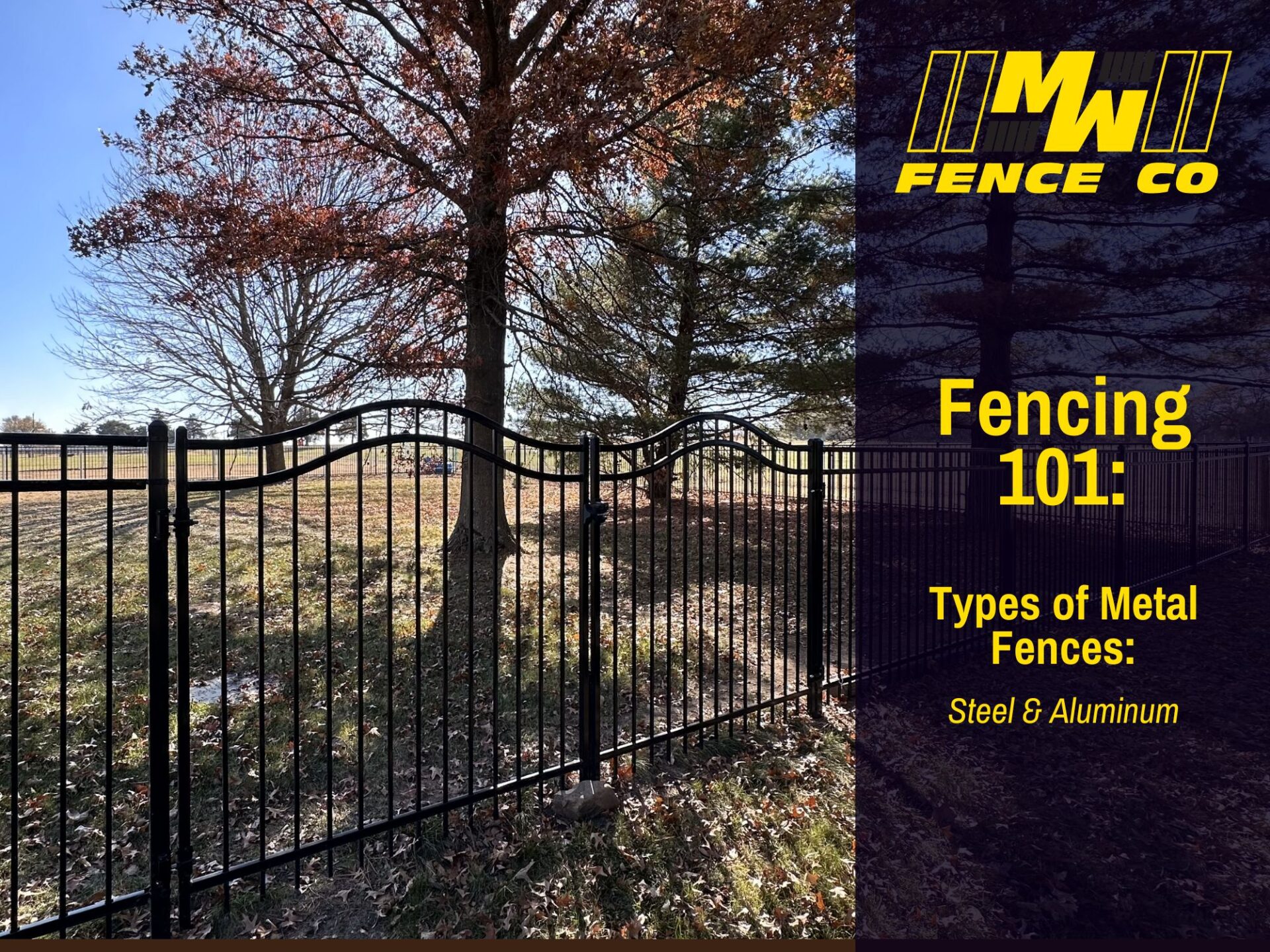When it comes to choosing a fence for your home or property, metal fences are an excellent option. They offer durability, security, and aesthetic appeal, making them a popular choice among homeowners and businesses alike. Within the realm of metal fences, two types stand out for their exceptional qualities: steel and aluminum. In this blog post, we will delve into the features, benefits, and considerations of each type.
Steel Fence Characteristics
Steel fences have long been prized for their strength and sturdiness. Constructed with iron and carbon, the resulting alloy is incredibly resilient, making it suitable for various applications. One of the key advantages of steel fences is their exceptional durability. They can withstand harsh weather conditions, resist rust and corrosion, and are highly impact-resistant. This makes steel fences a fantastic choice for areas with inclement weather or high traffic, providing long-lasting protection.
Another noteworthy feature of steel fences is their versatility. They offer a wide array of design options, including intricate patterns and ornamental details, allowing homeowners to tailor the fence to their preferences. Steel fences can accommodate your aesthetic needs, whether you prefer a classic, decorative look, streamlined appearance, or more modern.
However, it is important to consider some potential drawbacks of steel fences. As sturdy and heavy as they may be, steel fences can be more challenging to install due to their weight. Professional installation is highly recommended to properly set up steel fences to ensure secure fitting and alignment. Additionally, steel fences may require periodic maintenance, such as repainting or anti-rust treatments, to maintain their appearance over time.
Aluminum Fence Characteristics
On the other hand, aluminum fences offer a lightweight alternative without compromising on durability or aesthetics. Aluminum is naturally resistant to rust and corrosion, making it an ideal option for coastal or humid environments. Due to its lightness, aluminum fences are easier to handle and install, potentially reducing labor and installation costs. Homeowners looking for a more budget-friendly metal fence may find aluminum to be a suitable choice.
While aluminum fences may not be as strong as steel, they still provide ample security for residential purposes. They are available in various styles, from simple and sleek to ornate and decorative, allowing homeowners to match the fence with their preferred architectural design. Similarly to steel fences, aluminum fences can be customized with different color options to match the surrounding landscape or property aesthetics.
One notable consideration for aluminum fences is their vulnerability to dents and general wear and tear. Although they are resistant to rust, they are less impact-resistant than steel fences. Therefore, they may not be suitable for areas with heavy usage, such as commercial properties or high-traffic areas. However, for most residential applications, aluminum fences provide a cost-effective and visually appealing solution.
Types of Metal Fences at MW Fence
Overall, both steel and aluminum offer compelling options for metal fences. Steel fences are known for their strength, durability, and versatility, providing robust protection and a wide range of design options. Aluminum fences, on the other hand, offer a lightweight yet durable alternative that is easy to install and maintain, making them an excellent choice for residential applications. Ultimately, the decision between steel and aluminum fences depends on your specific needs, budget, and aesthetic preferences. Whichever material you choose, a metal fence will undoubtedly enhance the security and beauty of your property. If you have more questions about what type of fence material is best for your needs, reach out to us at MW Fence today!



